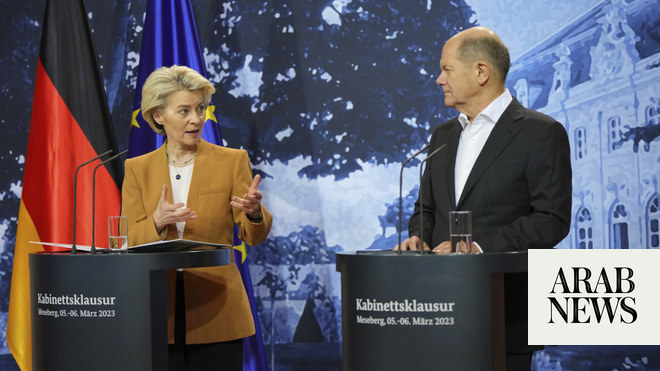
LIVERPOOL, England, Dec 12 (Reuters) - Russia faces massive consequences and severe costs if President Vladimir Putin attacks Ukraine, the Group of Seven warned in a statement on Sunday.
U.S. intelligence assesses that Russia could be planning a multi-front offensive on Ukraine as early as next year, involving up to 175,000 troops.
The Kremlin denies it plans to invade and says the West is gripped by Russophobia. Moscow says the expansion of NATO threatens Russia and has contravened assurances given to it as the Soviet Union collapsed in 1991.
At a meeting in the northern English city of Liverpool, the G7 delegates said they were united in their condemnation of Russia"s military build-up near Ukraine and they called on Moscow to de-escalate.
"Russia should be in no doubt that further military aggression against Ukraine would have massive consequences and severe cost in response," said the statement, which confirmed a draft version first reported by Reuters.
"We reaffirm our unwavering commitment to Ukraine"s sovereignty and territorial integrity, as well as the right of any sovereign state to determine its own future."
A statement released by the Russian Embassy in London on Saturday evening, before the joint G7 document was reported, said that Britain"s frequent use of the phrase "Russian aggression" during the Liverpool meeting was misleading and designed to create a cause for the G7 to rally round.
"Russia has made numerous offers to NATO on ways to decrease tensions. The G7 forum could be an opportunity to discuss them, but so far we hear nothing but aggressive slogans," the embassy statement said.
"RED LINE"
Italian Foreign Minister Luigi Di Maio, Canadian Foreign Minister Melanie Joly, French Foreign Minister Jean-Yves Le Drian, U.S. Secretary of State Antony Blinken, British Foreign Secretary Liz Truss, German Foreign Minister Annalena Baerbock, and European Union High Representative for Foreign Affairs and Security Policy Josep Borrell Fontelles attend a plenary session of the G7 summit of foreign and development ministers at the Museum of Liverpool, in Liverpool, Britain, December 11, 2021. REUTERS/Phil Noble/Pool
Italian Foreign Minister Luigi Di Maio, Canadian Foreign Minister Melanie Joly, French Foreign Minister Jean-Yves Le Drian, U.S. Secretary of State Antony Blinken, British Foreign Secretary Liz Truss, German Foreign Minister Annalena Baerbock, and European Union High Representative for Foreign Affairs and Security Policy Josep Borrell Fontelles attend a plenary session of the G7 summit of foreign and development ministers at the Museum of Liverpool, in Liverpool, Britain, December 11, 2021. REUTERS/Phil Noble/Pool
For Moscow, the growing NATO embrace of a neighbouring former Soviet republic - and what it sees as the nightmare possibility of alliance missiles in Ukraine targeted against Russia - is a "red line" it will not allow to be crossed.
Putin has demanded legally binding security guarantees that NATO will not expand further east or place its weapons close to Russian territory; Washington has repeatedly said no country can veto Ukraine"s NATO hopes.
In 2014 Russia seized the Black Sea peninsula of Crimea from Ukraine, prompting the West to impose sanctions on Russia.
The Kremlin on Sunday said that Putin told U.S. President Joe Biden that Russian troops posed no threat and that Moscow was being demonised for moving troops around its own territory. Putin and Biden have agreed to hold more talks, Moscow said. read more
Kremlin spokesman Dmitry Peskov said there were very serious conceptual differences between Russia and the United States on Moscow"s "red lines". read more
U.S. Secretary of State Antony Blinken said Russia could not exert its sphere of influence over Ukraine.
"That"s what Russia is purporting to assert and if we let that go with impunity, then the entire system that provides for stability, prevents war from breaking out, is in danger," he told NBC News in a post-summit interview on Sunday.
The G7 comprises Britain, Canada, France, Germany, Italy, Japan and the United States, as well as a representative from the European Union.
"We call on Russia to de-escalate, pursue diplomatic channels and abide by its international commitments on transparency of military activities," the G7 said.
"We reconfirm our support for the efforts of France and Germany in the Normandy Format to achieve full implementation of the Minsk Agreements in order to resolve the conflict in eastern Ukraine."












